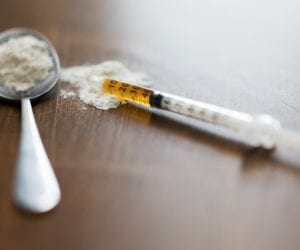Telltale Signs of Crack Addiction

What Are the Telltale Signs of Crack Addiction?
Crack is one of the most detrimental drugs when an addiction is formed, manifesting itself in a number of different symptoms of crack abuse including crack addict behaviors. When we talk about the telltale signs of crack addiction, we’re talking about the symptoms, behaviors, and mental signals of addiction, but before we can delve into spotting the specific symptoms of crack abuse, we need to first understand what crack is.
What is Crack?
Crack is a powerful stimulant, most notable for its more popular counterpart cocaine. While cocaine is more widely abused by youths and adults alike, crack still has a major stranglehold on a large number of drug users. In 2015, crack was responsible for almost 7,000 deaths in the U.S. alone, and that number has only been on the rise since 2012.
Short-Term Symptoms of Crack Abuse
Similarly to other recreational drugs, it can be difficult to know what crack contains after it has been handled, cut, and sold by multiple dealers. For this reason, the psychological and physical effects of the drug can vary radically depending on the dose and the dealer. In addition, the resulting effect of smoking crack and change in severity as a person smokes more or less. This may seem like obvious information, but we mention this to help you better understand the seemingly varying severity of the immediate symptoms of crack abuse. These symptoms include: increased aggression or aggravated behavior, restlessness or increased energy, increased anxiety, extreme nervousness and paranoia, delusional thinking, increased risk of seizures, increased risk of stroke, hallucinations most commonly involving bugs that burrow under the user’s skin, increased risk of heart attack or heart failure, increased risk of respiratory failure, and death.
When faced with these immediate symptoms of crack abuse, it can be hard to understand why anyone would choose to take the drug, but for many, behind the crack addict behavior, is a feeling of overwhelming energy and confidence that can be as emotionally addicting as the chemicals are physically addicting.
Long-Term Symptoms of Crack Abuse
The long-term symptoms of crack abuse can destroy the lives of those caught in its vice-like grip. Crack wreaks havoc on the body’s internal organs, especially vital organs like the liver, kidneys, and heart. Crack users are much more likely to suffer from intense or life-threatening infections as well, this is largely due to the fact that crack compromises the body’s immune system, though crack addict behavior plays a role in this as well. In addition to the risks, the telltale signs of crack addiction come with a large number of long-term consequences as well. Long-term symptoms of crack abuse include depression or mood swings, damage to reproductive organs, infertility, sexual dysfunctions like erectile dysfunction, paranoia and deluded thinking, respiratory illness and failure, and kidney failure. In addition to these unique long-term symptoms are the ever-increasing risks of stroke, heart attacks, heart failure, and seizures that can all result in death.
Telltale Signs of Crack Addiction and Recognizing the Symptoms of Crack Abuse
Now that we have established what crack is, what crack abuse is, and both the long-term and short-term symptoms of crack abuse, we can look at the telltale signs of crack addiction.
Due to the potent nature of crack, and its high risk of addiction, even small amounts of crack should be cause for alarm. Once crack addiction has a grip on a user, crack addict behavior will begin to surface, in many cases this is marked by crack users change in priorities, putting obtaining and using the drug above all else. In addition, crack addict behavior usually involves ignoring responsibilities, consequences, constant using with brief periods of attempted sobriety, and overdoses.
The telltale signs of crack addiction generally include regular disappearances without explanation, sudden financial trouble, dilated pupils, aggressive behavior, restlessness, insomnia or trouble sleeping, trouble breathing or increased breathing rate, irregular irresponsibility or tardiness, blistered or cracked lips and fingertips, unexplained burns on the hands or face, and irrational or sporadic behavior.
If you or someone you know is struggling with symptoms of crack abuse, or if they are showcasing the telltale signs of crack addiction, we urge you to get in touch with our consultation team, so you can get started on the road to sobriety.
If you or a loved one needs help with abuse and/or treatment, please call the WhiteSands Treatment at (877) 855-3470. Our addiction specialists can assess your recovery needs and help you get the addiction treatment that provides the best chance for your long-term recovery.
